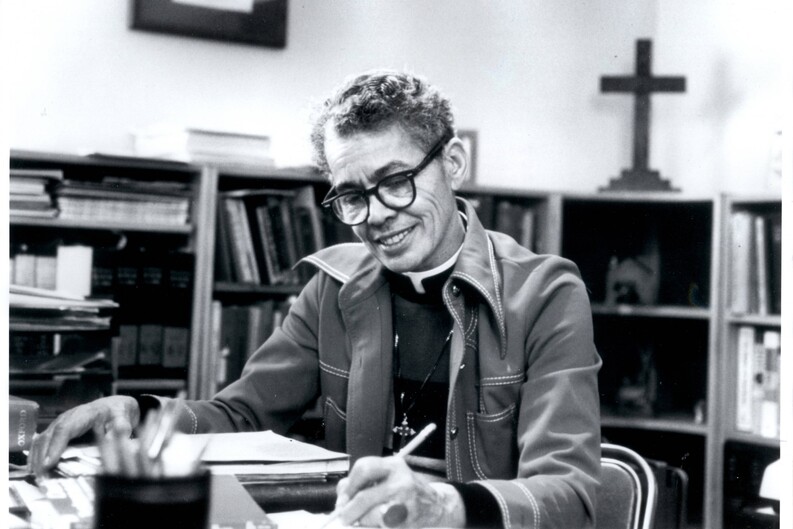New Yale Residential College to Honor Pauli Murray ’65 JSD

Yale University President Peter Salovey has announced that one of the new undergraduate residential colleges will be named for Anna Pauline Murray, who received a J.S.D. from Yale Law School in 1965.
By naming the new residential college Pauli Murray College, the University seeks to honor Murray's achievements in law and religion, as well as leadership in civil rights and the advancement of women.
“It is a moment of great pride for YLS that the contributions of this accomplished and pioneering graduate will now be permanently honored in Yale College and University,” said Dean Robert C. Post ’77.
Anna Pauline Murray ’65 JSD, ’79 Hon. DDiv, known as Pauli Murray, enrolled at Hunter College in the 1920s, graduating in 1933 after deferring following the Great Depression. Later, Murray began an unsuccessful campaign to enter the all-white University of North Carolina. The case received national publicity, and Murray became widely recognized as a civil rights activist.
United States Supreme Court Justice Thurgood Marshall cited "States’ Laws on Race and Color" for its influence on the lawyers fighting segregation laws. President John F. Kennedy appointed Murray to the Committee on Civil and Political Rights of the President’s Commission on the Status of Women.
Awarded a fellowship by the Ford Foundation, Murray pursued a doctorate in law at Yale in order to further scholarly work on gender and racial justice. Murray co-authored "Jane Crow and the Law: Sex discrimination and Title VII," in which the author drew parallels between gender-based discrimination and Jim Crow laws. In 1965, Murray received her J.S.D. from Yale Law School, becoming the first African American to do so. Murray’s dissertation was titled "Roots of the Racial Crisis: Prologue to Policy." Immediately thereafter, Murray served as counsel in White v. Crook, which successfully challenged discrimination on the basis of sex and race in jury selection. Murray was a cofounder, with 31 others, of the National Organization for Women.
Murray was a vice president of Benedict College in Columbia, South Carolina; then left to become a professor at Brandeis University, earning tenure and teaching until 1973. Murray was the first person to teach African-American studies and women’s studies at Brandeis.
The final stage of Murray’s career continued a life marked by confronting challenges and breaking down barriers. At age 63, inspired by connections with women in the Episcopal Church, Murray left Brandeis and enrolled at the General Theological Seminary. Murray became ordained as an Episcopal priest.
Murray, distinguished Yale Law School graduate, civil rights activist, feminist, poet, teacher, and priest, died in 1985 at age 74.
“Pauli Murray represents the best of Yale: a pre-eminent intellectual inspired to lead and prepared to serve her community and her country,” said Salovey. “Murray was at the intellectual forefront of the battles that defined 20th-century America and continue to be part of our discourse today: civil rights, women’s rights, and the role of spirituality in modern society.”
In 2007, Yale Law School honored Pauli Murray at Alumni Weekend. At the ceremony, Nicholas deB. Katzenbach Professor of Law Reva Siegel delivered a speech highlighting Murray’s extraordinary achievements.


